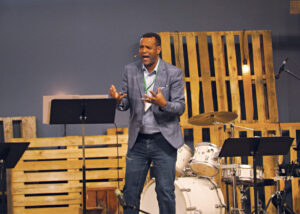I heard some strong language this summer about church from various extended family members. I’m sure this is not just in my family! Conversation at family gatherings is not usually conducive for more thoughtful or caring conversations, but these phrases caught my ear and attention.
“I’m done with church.”
“I’m done with denominations.”
“I’m deconstructing my faith.”
In July, a new research report was released by the Public Religion Research Institute in the United States. It listed the top reasons why people leave their faith community (Christian and non-Christian faiths). The primary reasons include:
- No longer believing in the religion’s teachings
- Negative teachings about people who are LGBTQ+
- Family that didn’t take faith seriously
- Scandals involving religious leaders
I learned this summer that “deconstructing faith” is a thing, with books, videos, blogs, and even a Wikipedia page. When I look at my family members who are involved in deconstruction, I see them compassionately engaging with people who experienced betrayal and trauma through their church experiences. I see family members leading these people toward healing.
This reminds me of a book my husband, Keith, and I read as young adults: Escaping from Fundamentalism, by James Barr. It played a significant role in helping us to hold on to faith, and to stay in the church, while our belief systems shifted dramatically.
Much later, I remember leading a fascinating seniors Bible study class in which we revisited Bible passages about which the participants had heard only one interpretation in their younger years. Together we explored how those passages might be understood in different ways today.
This summer I remain intrigued that a neighbouring congregation did a worship series on Bible stories learned as children, and how they might be understood differently, today, as adults. This is all part of “deconstructing faith,” by re-examining the religious ideas we were taught in our past, and learning to look at them differently today. This is a normal process throughout our lives.
But does it necessarily follow that one leaves the church completely? Or loses one’s faith in God, or stops being a Jesus-follower? It is clear from the research studies that most people who stop going to church do not lose faith, just church participation. The focus on believing in a certain way in order to belong to church is a struggle.
I heard another phrase from a family member this summer: “I love my church. It is a safe place for me.” That is a wonderful testimony of confidence and hope.
More conversation is needed to know what makes church a safe space, for my family members, and for your family members. Can church-goers be authentically who they are at church, or do they have to put on a cheerful face, along with good clothes? Which church-goers need to hide and protect their identities (race, ethnicity, gender, marital status, etc.) in order to go to church? For whom is church a safe space, where a person is supported to stretch and grow into being even more of the person God made them to be? And for whom is church not a safe space?
My hope is that our churches are welcoming and affirming safe places for all people. I know that differences in worship style mean that it is easier for people to belong in some congregations than in others. I hope those are primarily differences in culture.
I love my church too. It is a safe space for me to keep exploring who I am in the context of a diverse faith community and the mystery of God.
Arli Klassen is a member of First Mennonite Church, Kitchener, and can be reached at klassenarli@gmail.com.








Leave a Reply
You must be logged in to post a comment.